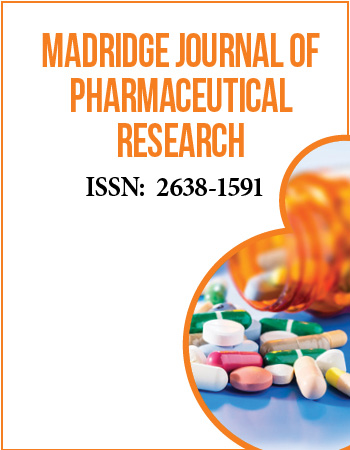International Conference on Medicinal and Pharmaceutical Chemistry
December 5-7, 2016 | Dubai, UAE
Genetic variation in CYP4F2 and VKORC1: Pharmacogenomics implications for response to warfarin
Division of Human Genetics, Department of Pathology, Faculty of Health Sciences, University of Cape Town
Background: Warfarin is the most commonly used drug in the management of thromboembolic disease. However, there is a huge variability in the time, number of doses or starting doses for patients to achieve the required international normalised ratio (INR) which is compounded by a narrow therapeutic index. Many genetic-association studies have reported on European and Asian populations which have led to the designing of specific algorithms that are now being used to assist in warfarin dosing. However, very few or no studies have looked at the pharmacogenetics of warfarin in African populations, yet, huge differences in dosage requirements to reach the same INR have been observed.
Objective: We set out to investigate the distribution of 3 SNPs CYP4F2 c.1347C>T, VKORC1 g.-1639G>A and VKORC1 c.1173C>T among South African Mixed Ancestry (MA) and Black African patients.
Methods: DNA was extracted from 383 participants and subsequently genotyped using PCR/RFLP for the CYP4F2 c.1347 (V433M) (rs2108622), VKORC1 g.-1639 (rs9923231) and VKORC1 c.1173 (rs9934438) SNPs.
Results: Comparing the Black and MA groups, significant differences were observed in the distribution of the following genotypes; CYP4F2 c.1347C/T (23% vs. 39% p=0.03). All VKORC1 g.-1639G>A genotypes (p<0.006) and all VKORC1 c.1173C>T genotypes (p<0.007).
Conclusion: CYP4F2 c.1347T (V433M) reduces CYP4F2 protein levels and therefore expected to affect the amount of warfarin needed to block vitamin k recycling. The VKORC1 g-1639A variant alters transcriptional regulation therefore affecting the function of vitamin k epoxide reductase in vitamin k production. The VKORC1 c.1173T variant reduces the enzyme activity of VKORC1 consequently enhancing the effectiveness of warfarin. These are preliminary results; more genetic characterization is required to understand all the genetic determinants affecting how patients respond to warfarin.


